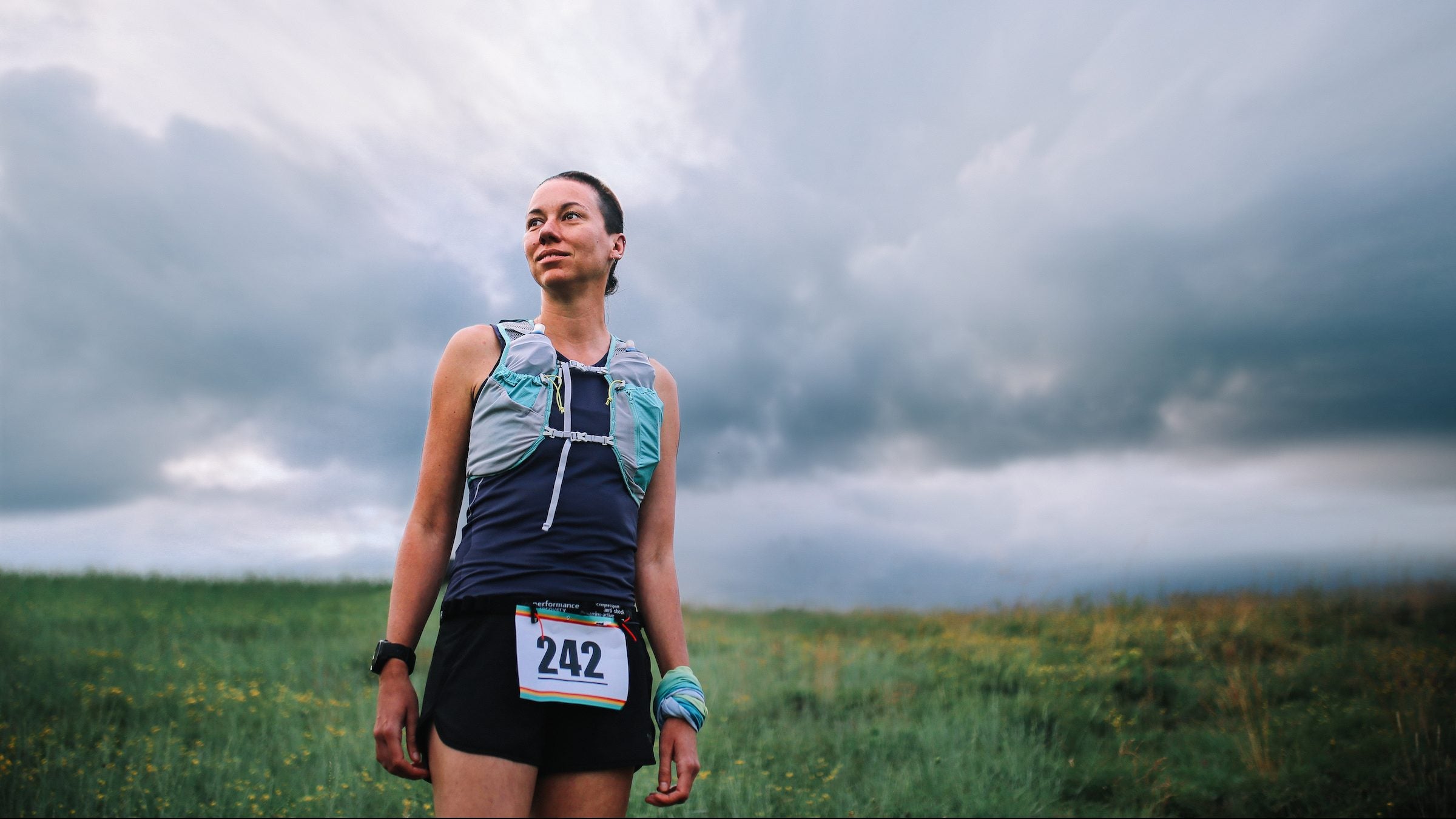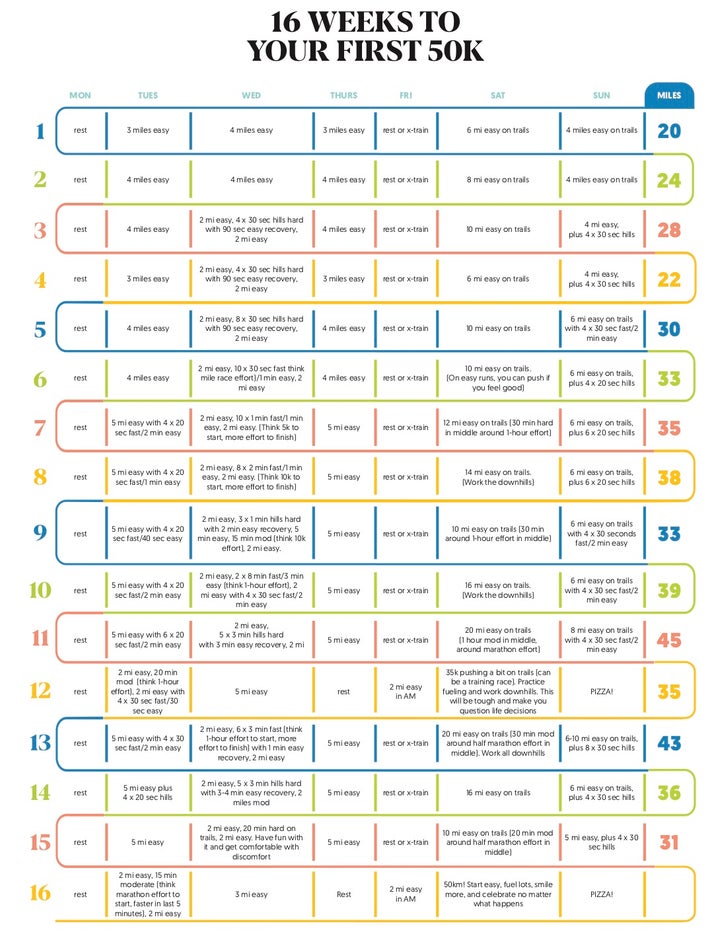Get Ready For Your First 50K in Just 16 Weeks With This Expert Training Plan

Inspired by Desiree Linden’s world best 50K performance? Intrigued by the idea of going a little longer than a marathon and dipping your toe in the ultrarunning world? Well, you’re in luck: Longtime coach and author of The Happy Runner David Roche put together this easy-to-follow beginner 50K training plan to help you get there safely and successfully.
RELATED:
- Desiree Linden’s 50K World Record Attempt: “I Like That Fear of the Unknown”
- 12 Lessons I Learned from My First 50K
- Looking to Go Long? These 50K Races Are Great For Beginners
Starting with 20 miles per week, you’ll put in a lot of time focusing on easy runs—the bread and butter of any good plan— while peppering in some longer runs on weekends and some strides and intervals during the week as well.
Strides—short bursts of power that last around 30 seconds—are one of Roche’s top tools for success, since they help build speed without straining your body too much. Since trail runs are a lot different than road marathons, Roche also believes in spending at least one or two runs per week on the trails.
Workouts should be done on the road or on a flat rail trail, but trying to find trails similar to what you’ll see on race day for those long weekend runs will help you head to the start line feeling totally prepared.
And the last major component of his plan is hill work—that’s right, both uphill and downhill. Trail 50Ks are much different than the same distance on-road, and it’s extremely rare to find a flat one. Show up prepared by making sure you’re following Roche’s prescriptions for hill workouts and incorporating some hillier trails for those long runs. Your quads will thank you when you’re hitting the first climb of the race course.
Make sure you’re fueling your efforts the same way you plan to fuel during your race: most ultrarunners will run wearing a hydration pack or vest, or at the very least, will be carrying a 20-ounce water bottle and some gels. Training your gut is just as important as training your legs! But at the end of the day, Roche’s only real requirement is simple: That you love what you’re doing, and have fun doing it! As The Happy Runner, you don’t need to grin every second of every run, or high five everyone you see, but it certainly wouldn’t hurt to crack a smile or offer a fist-bump to a passing jogger.
Ready to give it a shot?
Your Beginner 50K Training Plan
